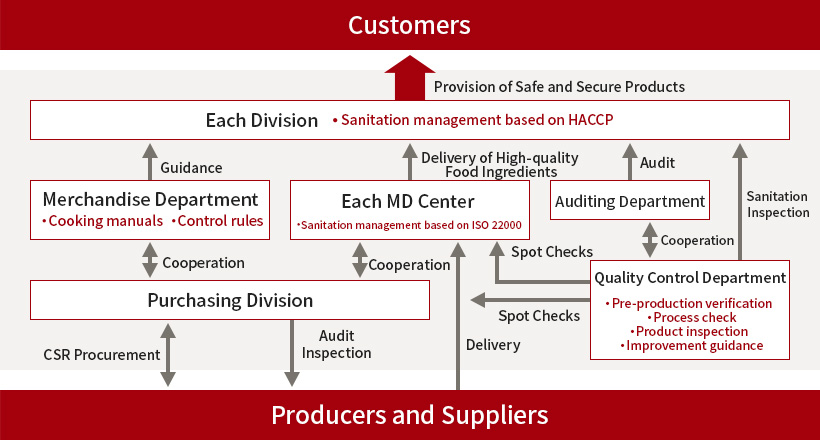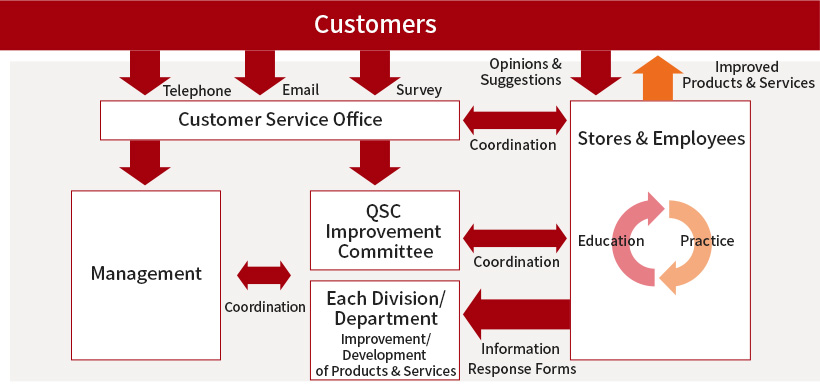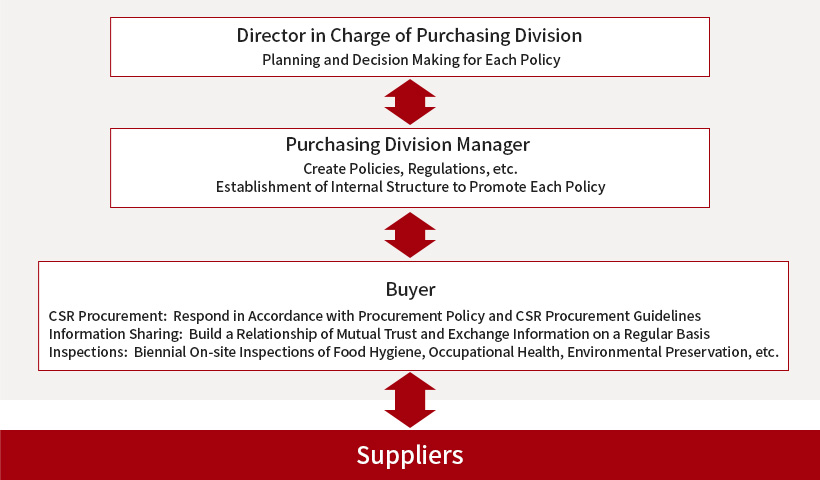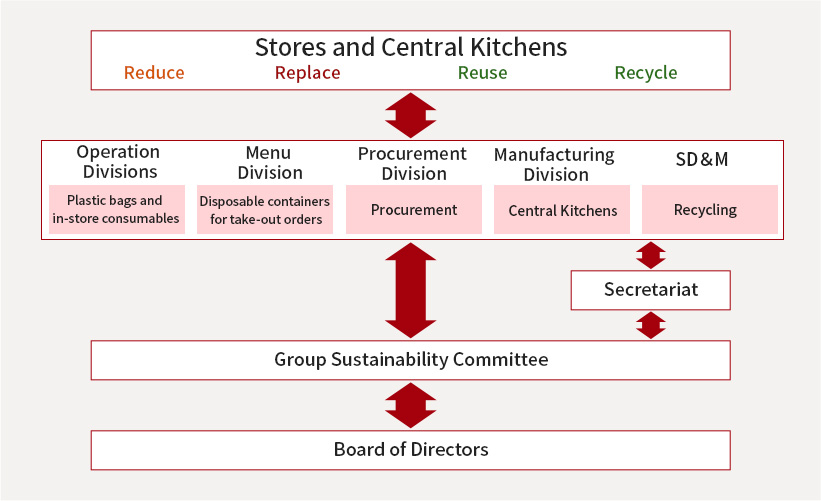Materiality
To realize a sustainable society and improve our corporate value through the provision of food and food-related services, based on our Sustainability Policy, we have identified our materiality from an analysis of their importance, for Skylark Group and for its stakeholders.
Steps in Identifying Our Materiality
STEP1 Identifying Issues
- From a single materiality perspective, we identify material issues for our business based on societal expectations such as the SDGs and assessment items from ESG rating agencies. Then, from a double materiality perspective, we identify issues that have a significant impact on society and the environment.
- Each division identified issues from their own business areas from a long-term perspective
STEP2 Ordering by Priority
Identified issues are then analyzed and prioritized based on their importance to Skylark Group and importance to its stakeholders.
“Importance to Skylark Group” is evaluated from the perspective of policies and strategies, social demands and issues to be addressed by capturing the nature of the business, and environmental and social considerations, while “Importance to Stakeholders” is evaluated from the perspective of trends in the world, stakeholders' expectations of the Company, and impact on the environment and society.
“Issues of Extreme Importance to Skylark Group.”
Food safety and security, responsible procurement, customer orientation, food loss reduction, decarbonization, nutrition, health maintenance and promotion, success and development of diverse human resources, improvement of working environment, DX, response to changing food preferences, health management, stable logistics.
“Issues of Very High Importance to Our Stakeholders.”
Food safety and security, responsible procurement, customer orientation, food loss reduction, decarbonization, plastic countermeasures, pollution prevention and environmental considerations, water conservation, biodiversity, education, child and forced labor.
*Scope of business activities considered: Operations, Products/Services, and Supply Chain
Stakeholders and scope of impact evaluated: Environment, Society, Consumers, Organizations within the supply chain

STEP3 Identifying Materiality
Prioritized issues are discussed by executives of relevant divisions and then deliberated at the Sustainability Committee before being determined as materiality and reported to the Board of Directors for approval.
In identifying the materialities, the company exchanged opinions with external stakeholders at executive study sessions and added “DX” and “biodiversity” to the list.
We review this same process every year and the materiality for 2026 is described below.
Skylark Group's Materiality and Risks/Opportunities
Goals based on Materiality Issues
The Sustainability Committee conducts an annual materiality analysis and reviews the materiality-based goals.
In addition, we have a system in place to report on and supervise issues related to the environment, health and productivity management, and society to the Board of Directors on a quarterly basis.
*Average store recommendation score by customers who visited the store
Initiatives on Materiality Issues and Evaluation Linkage
The remuneration for our Chairman and CEO, our President and COO, other Directors (excluding Outside Directors and Directors who are Audit and Supervisory Committee Members), Executive Officers, and presidents of Group companies is composed of a fixed basic remuneration and a performance-linked remuneration that varies according to company performance and other factors. The performance-linked remuneration consists of a bonus based on consolidated business results for each fiscal year, and a phantom stock plan in which the payment and its amount are determined in linkage with the stock price over a certain period.
Starting with the phantom stock plan in 2022, in addition to stock price requirements, we have incorporated evaluations from international ESG rating agencies such as DJSI and CDP Climate Change. Furthermore, from 2024, we have added the achievement of "employee engagement targets," "customer satisfaction targets," and "CO2 emission reduction targets" as ESG indicators, introducing a system that links the promotion of our sustainability management with executive remuneration.
For example, regarding the achievement of the "CO2 emission reduction targets," we have set and disclosed a KPI to reduce Scope 1 and 2 emissions by 4.2% annually, in line with SBT standards. The progress toward this KPI is directly reflected in the remuneration of the Chairman and CEO, the President and COO, and other directors, thereby reinforcing our commitment to CO2 emission reduction as a critical performance indicator.
Furthermore, KPIs related to materiality issues identified by the Sustainability Committee, such as decarbonization and food loss reduction, are set for each responsible Executive Officer and Director (department manager level), and their achievement is linked to individual performance evaluations. This evaluation affects not only the variable range of bonuses but also the individual's annual performance rating. The KPIs set for each Director are also shared with their team members to promote these initiatives throughout the departments.
Food Safety & Security
Promotion System

Customer Orientation
Promotion System

DX
Workstyle Reform
Responsible Procurement
Promotion System

Food Loss & Waste Reduction
Plastic Countermeasures
Promotion System

Decarbonization
Water Resource Conservation
Biodiversity